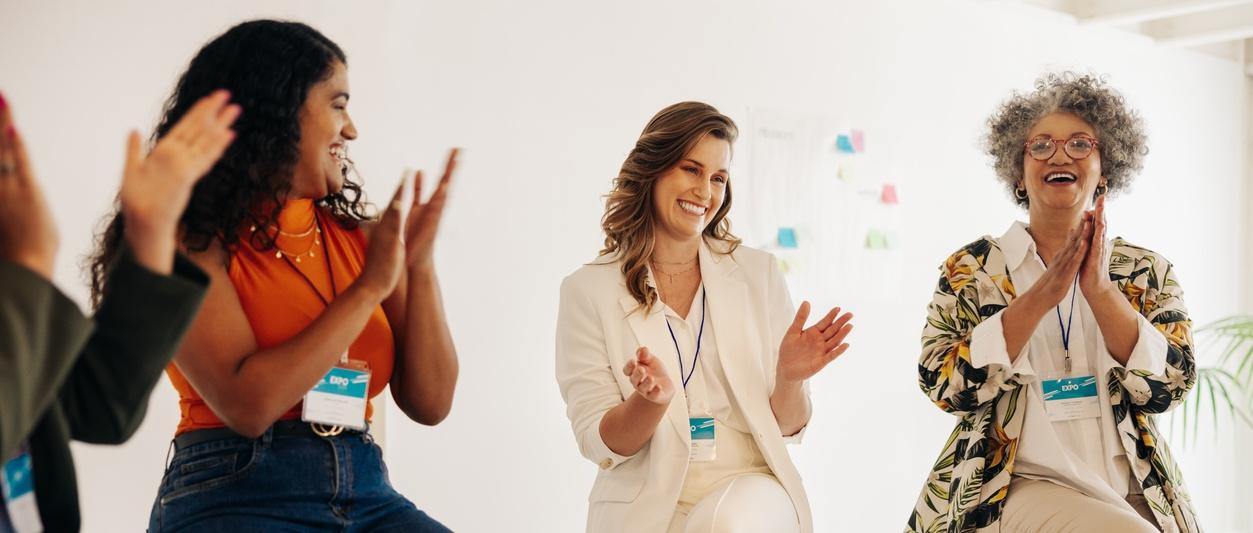
Real stories: How to manage endometriosis and your career
Peer reviewed by Dr Colin Tidy, MRCGPAuthored by Amberley DavisOriginally published 21 Apr 2024
- DownloadDownload
- Share
We speak to three women who navigate endometriosis with successful careers. They speak frankly about the challenges, reveal the adjustments that have helped, and share their words of advice.
In this article:
Continue reading below
Endometriosis at work
If you have endometriosis, you'll know that symptoms like severe pain, fatigue and heavy periods can make certain work days extra challenging. But this doesn't mean you can't have a thriving career.
Keisha, Vicky, and Bhavni share how they manage endometriosis at work - their personal successes, challenges and tips.
Keisha, operations manager
Following previous office-based and physically challenging jobs, 32-year-old Keisha from Leeds has established a career as an operations manager at EMIS health. To support others, she's also founded the National Endometriosis Survivors Support group. Last year, Keisha welcomed her "miracle baby girl" Zara into the world, now 10 months old. You can read more about Keishas fertility journey.
"In the past I’ve been asked 'what can you do to change your sick days?' - I couldn't."
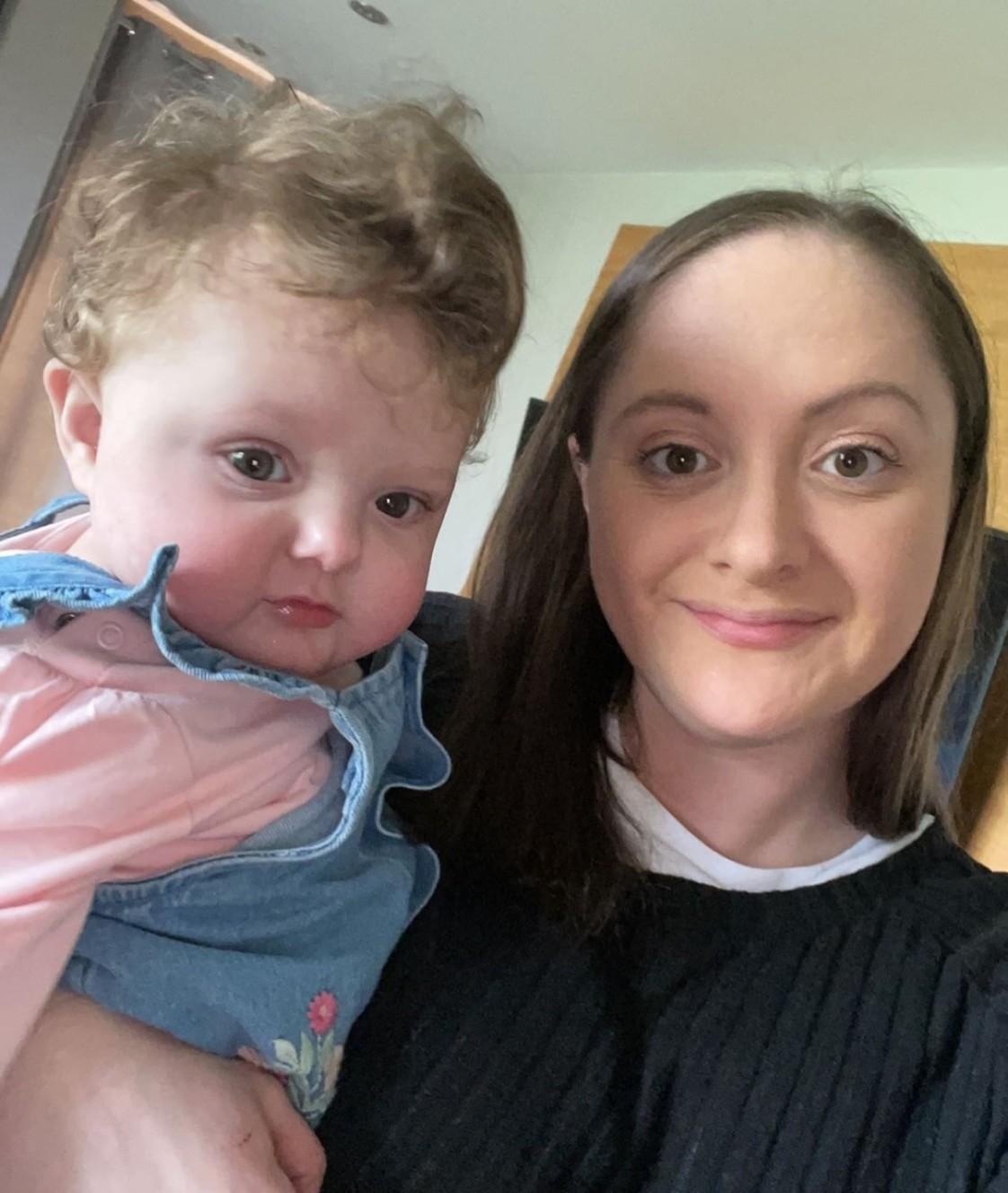
"I think endometriosis has shaped my career," Keisha reflects. "I've had problems with sickness policies, especially early on in my career as a bank cashier. This role was more physical, transferring coins and being on my feet a lot. On days where I had heavy bleeding and lots of pain, it just wasn't possible to go in. This influenced my move into project management, a career with home working options."
Challenges in my twenties
Keisha's early twenties were a financially challenging time. In the work cultures she encountered, this jarred with unforgiving sickness policies and office-only working.
Sick days - "I would end up in review meetings about my number of sick days. I've been asked what can you do to change this? - I couldn't!"
Toilet breaks - "Some companies time these and assume you're wasting company time."
Hot water bottles - "Many offices raise health and safety concerns with these."
Period stigma - "Endometriosis is a whole-body disease often dismissed as 'just' a bad period that you should be able to work through."
Mental health - "I went through chemical menopause as part of my treatment, which really takes a toll. When I told colleagues, many thought I was joking - they just couldn't understand that someone that young was going through that."
Bouncing back - "There's an expectation to recover quickly from keyhole surgery, but my body still underwent a major procedure and needed time to recover."
Lack of knowledge/sensitivity - "After time off following a miscarriage, I had one lady comment why didn't I use protection? I was undergoing fertility treatment at the time."
Keisha is able to talk calmly about these difficult experiences, which may have something to do with her current role: "In contrast, my current company have done everything to support me, both through miscarriage and my pregnancy with my 10-month-old daughter Zara."
"I now feel supported rather than punished."
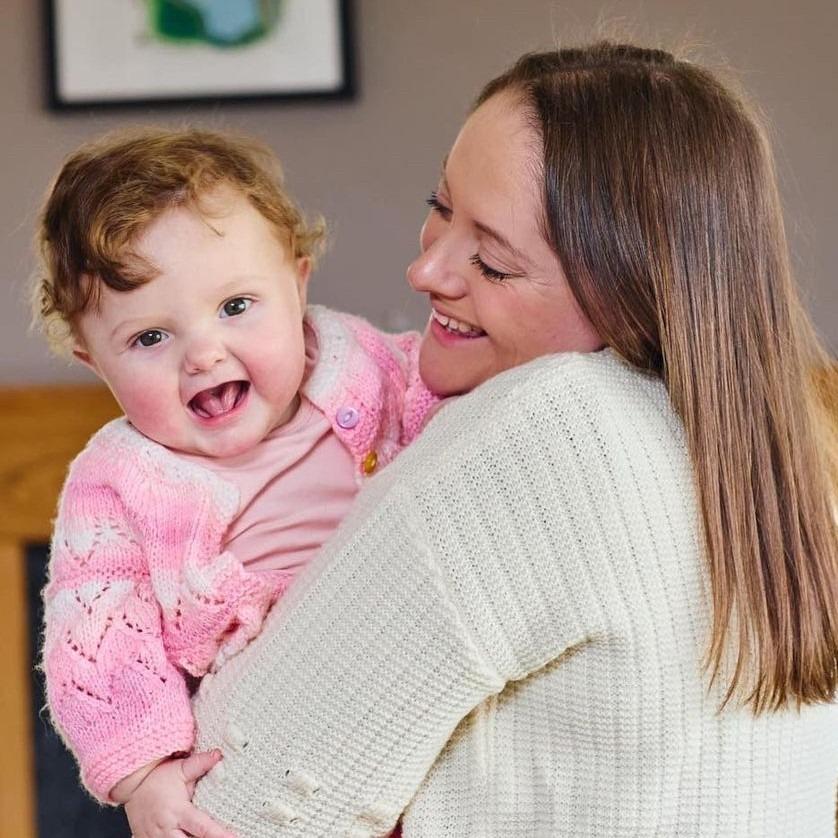
What works for me now
"The flexible-hybrid model I have now at EMIS works so well for me," Keisha says confidently. She talks positively about finding the right work culture, and how this really helps endometriosis at work.
Flexibility - "When I was office-based, I was able to go home if symptoms were bad."
Working from home - "Yesterday, I was in too much pain to sit at my desk. I ended up with my laptop on the floor, then the sofa. It helps being able to move around at home."
DSE assessments - "These are great as EMIS will send me any kit that makes work life more comfortable. For example, I've previously had a standing desk."
Breaks - "My manager lets me take regular breaks. As long as the work gets done, it's fine. I may go on a walk to help with the pain.
Meetings - "I'm also ensured gaps between my meetings."
Openness with my team - "We have regular tea breaks which are an open space for us to check in with each other. We share if we're feeling good, or not so good, that day."
Be open and honest
When asked what advice she'd most like to share with others, Keisha responds quickly, saying: "openness and honesty". She encourages others to be truthful about the effect endometriosis is having on their physical and mental health.
“Try not to be nervous or less inclined to share if your manager is a man," she adds. "Personally, I've had positive experiences with male managers who took it upon themselves to research the condition and gain understanding, so they could support me."
Continue reading below
Vicky, senior HR assistant
35-year-old Vicky heard the word endometriosis for the first time aged 28. A year later, she was diagnosed. Alongside a career in HR for health and wellness, Vicky has founded the Endometriosis UK Dundee Support Group. She lives in Arbroath, Scotland, with her husband and black labrador Baxter.
"I think my lived experience has made me a more empathetic HR person."
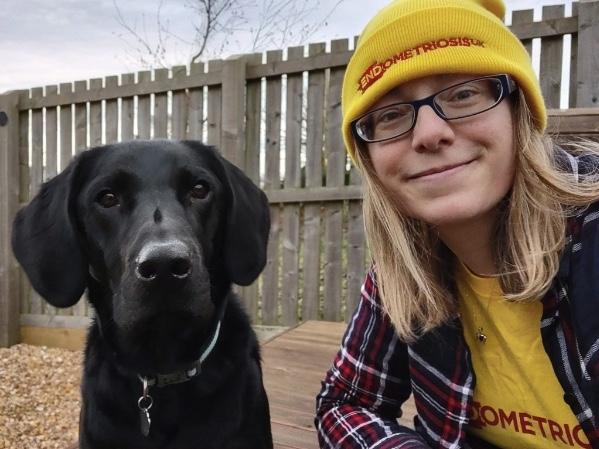
"I have worked in HR for 12 years now and was diagnosed with endometriosis around six and a half years ago. I think my lived experience has made me a more empathetic HR person. I enjoy helping others find what works for them to keep them in the workplace."
New job, new pain
Vicky recalls the challenge of navigating a new role while coping with daily pain: "I remember, I had not long started a new role when the pain started affecting me every day, rather than just when I was on my period. Not ideal timing." she exclaims.
But Vicky emphasised that her employer was "incredibly supportive", allowing her to attend doctor's appointments where she subsequently got diagnosed.
Just as your experience of endometriosis can be different to the next person, so can the work challenges you face. Unlike Keisha, sickness policies haven't been a problem for Vicky at any of her places of work. But this doesn't mean that she's avoided the stigma of invisible pain.
"One of the biggest challenges is that I don't necessarily look sick when I'm in pain, but I think all of us with endometriosis get good at the brave face routine," she says.
"We all get good at the brave face routine."
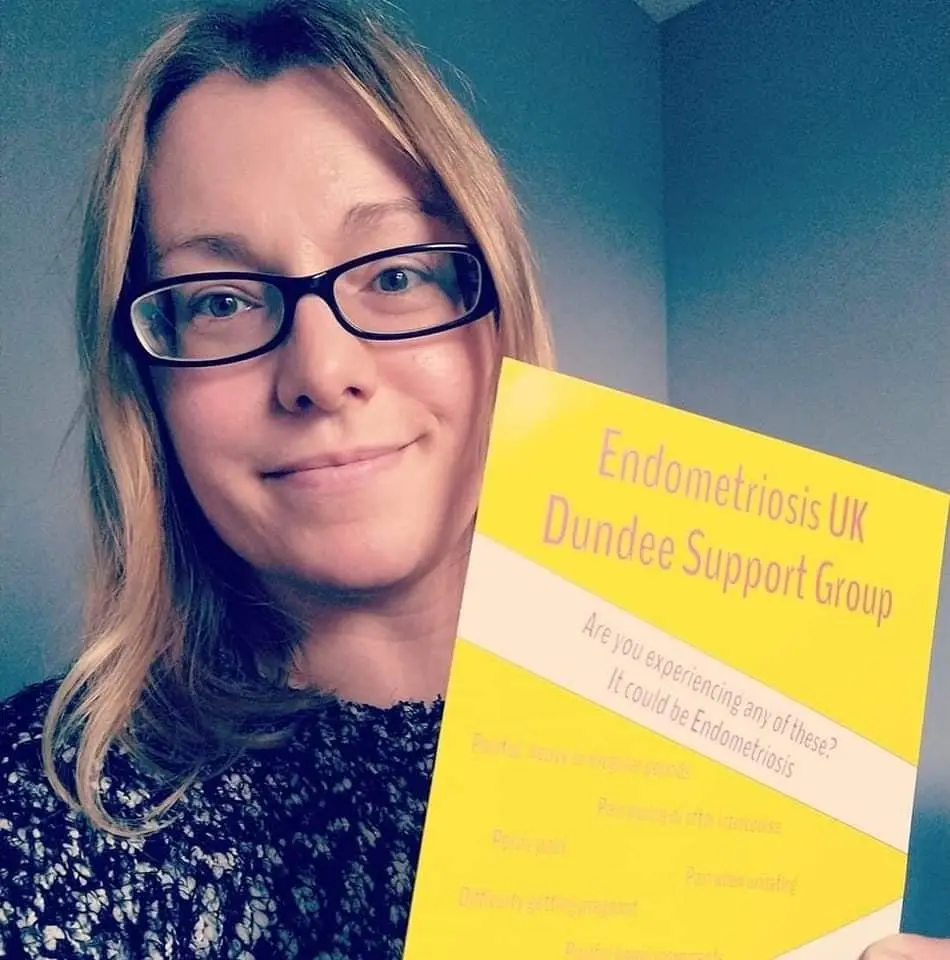
Phased returns, flexibility, and the right kit
Vicky feels lucky that she's been allowed several adjustments to help make endometriosis at work more manageable and comfortable:
Post surgery - Like Keisha, Vicky has had surgery as part of her endometriosis management. "In previous roles, I have had phased returns to work following my surgeries. In some cases, I have also been allowed to work from home and avoid travel, which meant I could return to work sooner."
Hybrid working - "The role I'm in now is flexible - I mostly work from home and can choose to go into the office if I wish to do so."
Assessments - "My current employer asked about adjustments as part of the onboarding process, and I am lucky to have had an assessment done."
Home set up - "Following the assessment, I have the right kit at home now: a sit-stand desk, fully adjustable ergonomic chair, second screen, laptop riser, separate keyboard and ergonomic mouse."
Find out what your employer offers
For Vicky, looking into what resources your employer offers is important: "This may be a periods/menopause policy, occupational health, or private healthcare."
"I know it's not the easiest of subjects to broach," she adds, " but it may help you get the most suitable support if you're able to share your experience."
Bhavni, regulatory manager
Bhavni lives in London with her family and their cat, Pebbles. Now 47, she was first diagnosed age 22, and has witnessed first-hand how workplace culture has progressed for people managing endometriosis at work. Bhavni works in the legal services industry for a solicitor’s regulatory authority. An endometriosis support group leader, she is also a passionate advocate for Women's Health.
"In my twenties, I had neither the confidence nor the knowledge to ask work for what I needed."
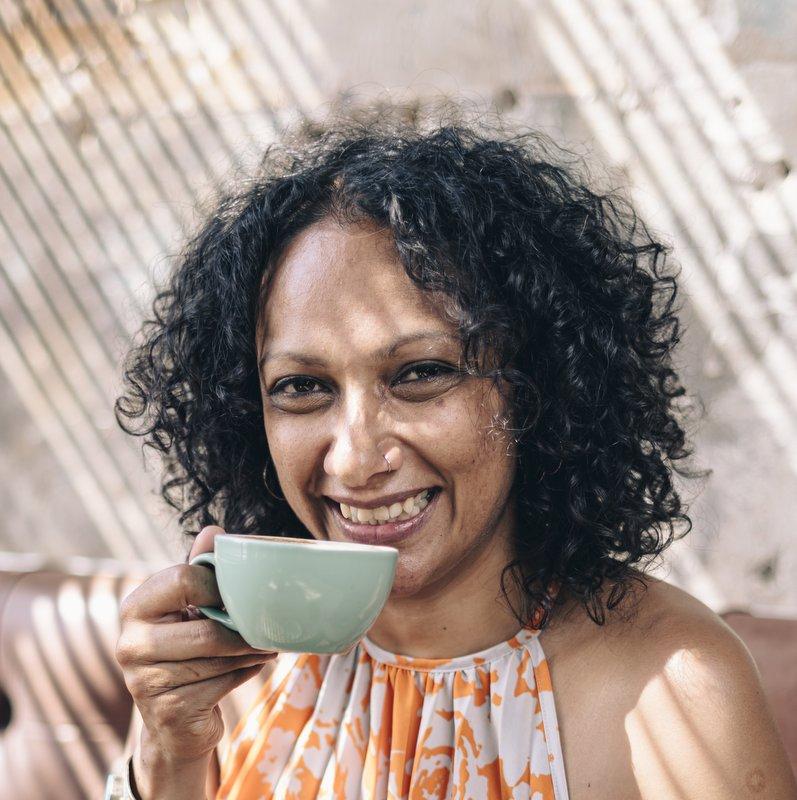
Bhavni was diagnosed before she started her long-term career. She was teaching English abroad when she had to return to the UK for an emergency scan, which lead to surgery and her diagnosis: "Before then, I'd had no idea that my periods were any different to anyone else's."
Pain, fatigue, and heavy bleeds
For Bhavni, the three biggest effects of endometriosis are pain - which also occurs mid-menstrual cycle for her - fatigue, and heavy bleeds.
Pain - "The thought of walking to the office is difficult, as is sitting up at a desk when you're in pain. Hot water bottles help, but I'm not sure I've ever seen a woman whip one out at a desk, for endometriosis or period pain - we tend feel embarrassed."
Fatigue - "I’ve had full-time office jobs where you had to be seen to be at your desk. There are times where I'm not being able to move off the sofa for three days."
Heavy bleeds - "Proximity to bathrooms is important. Work bathrooms are also communal, which isn't ideal, and running there a lot is just awkward - especially with a handbag of period products."
When asked how employers responded to these needs, Bhavni says: "I’ve had really mixed approaches from managers, some positive and some not."
"The four surgeries I had in my twenties spanned three different roles. Two were brilliant and did what they could to support me before and during recovery," she says emphatically.
“The other company was less understanding. I suppose they took a more procedure-driven rather than person-centred approach. They got occupational health involved but this wasn't carried out in a supportive way. It was more about checking if I was being truthful."
Reflecting on the challenges of having a hidden illness, she says “I was left thinking 'do they actually believe me?' Ultimately, you're dealing with humans, but not all companies take the soft approach."
Managing my own diary
Bhavni's work life experience is well-rounded, having worked in offices and from home at various points. In her early thirties, she also set up her own consultancy, which she had for 5-6 years.
"My endometriosis was one of the biggest drivers for this," she confirms. "Having complete control over my diary - deciding what I did and when - aligned perfectly with managing my condition, giving me the flexibility I needed.
"At this point in my life post-twenties, my symptoms were getting worse, and there'd be times when I couldn't move much. My anxiety was also high when I had client meetings I had to travel for."
Bhavni returned to employment after this, but found the work culture to be rigid and unforgiving when it came to hidden illnesses. Her next role was home-based and a return to managing her own diary, which was "an absolute godsend after my last role".
Gaining confidence
Bhavni may no longer work for herself, but age and experience have helped her get the best available work support - as has the changing work culture in recent years.
"I started my career knowing I had endometriosis 25 years ago, when the work environment was very different and also male dominated in my industry. I would just plough on, get through the day somehow, and collapse when I got home."
Thinking on her mindset in her twenties, she goes on: "It probably didn't even enter my psyche to consider asking for adaptations that make endometriosis at work more manageable. I don't think I had the confidence nor the knowledge at this age."
Yet, with more years Bhavni became more confident: "Having supportive managers helps, but so does my age. In my current job, I've been open from the get-go about what I need."
With conviction, she adds: "I’m very able to do my job - my mind has always been capable, it's just that adjustments can make things easier on my body."
My tips and post-pandemic culture
"The COVID-19 pandemic has been a game-changer for working from home policies - I really hope a lot of people are benefiting from this. Working on the sofa with my laptop can really make coping with pain and fatigue easier."
"Not to mention having your own toilet. But nowadays - especially post-pandemic - period products are in most office bathrooms, which helps a little."
Bhavni has some final thoughts for others navigating endometriosis at work:
Control - "For me, control over my diary is really important."
Pain relief - "I stash paracetamol in every jacket pocket and bag so I'm not caught out."
Opening up - "Ultimately, the best thing you can do is to be honest and open with work. Worst case scenario is they say 'no' - that's recoverable, but if they say 'yes' some serious adjustments could be made to help you thrive."
Allies - "Find allies you can confide in. If this is management, great, but it could also be someone from HR or a close colleague."
Bhavni ends with this decisive thought: "You've got to be bold and take a risk on yourself."
The top five takeaways for thriving at work with endometriosis, according to Keisha, Vicky and Bhavni:
Being open and honest about your needs with your employer.
Having the flexibility to work from home when you need to.
Maintaining some control over your diary and planning in breaks.
Undergoing a DSE assessment for the most comfortable kit.
Finding out what resources and policies your employer offers.
Remember, if you are struggling to manage or would like to connect with others, you can find your nearest endometriosis support group, like the ones led by Keisha, Vicky and Bhavni. If you're an employer looking to improve your offering to employees with endometriosis, explore the Endometriosis Friendly Employer scheme.
Article history
The information on this page is peer reviewed by qualified clinicians.
Next review due: 21 Apr 2027
21 Apr 2024 | Originally published
Authored by:
Amberley DavisPeer reviewed by
Dr Colin Tidy, MRCGP

Ask, share, connect.
Browse discussions, ask questions, and share experiences across hundreds of health topics.

Feeling unwell?
Assess your symptoms online for free